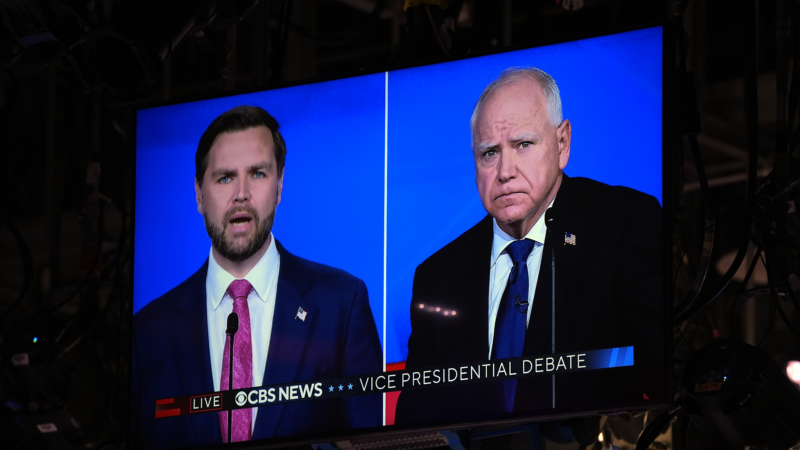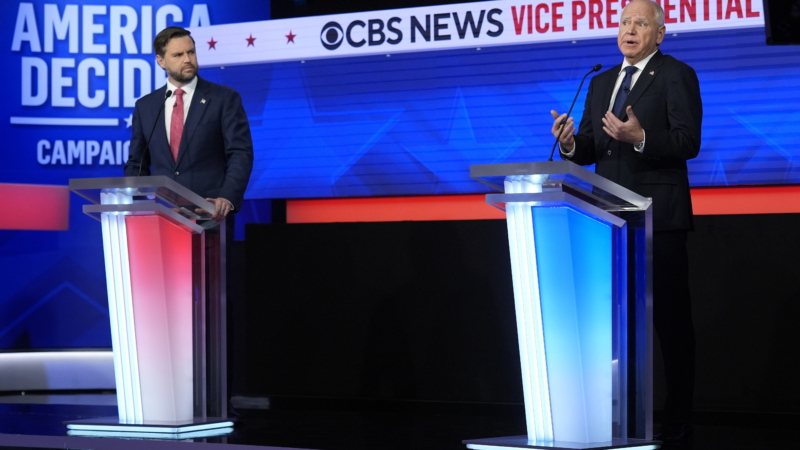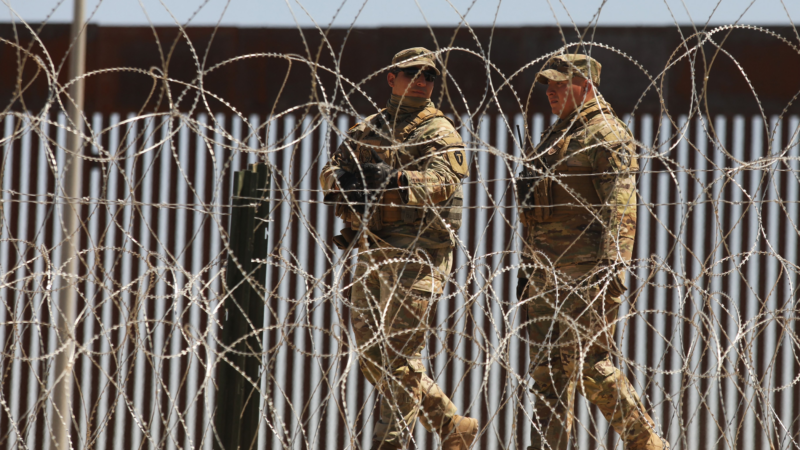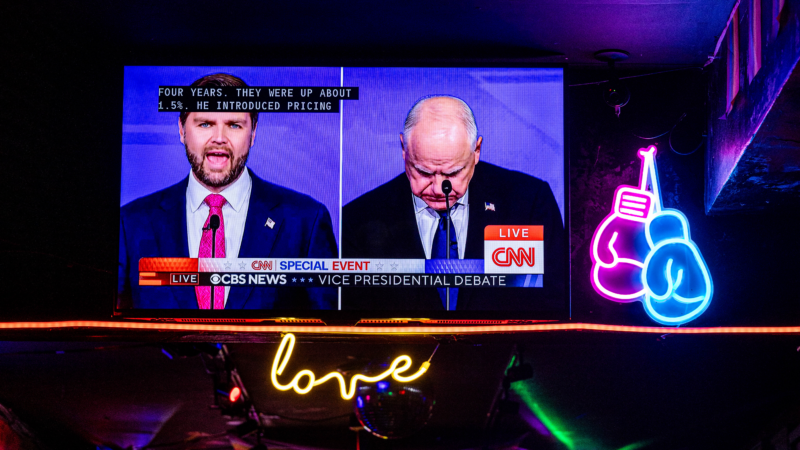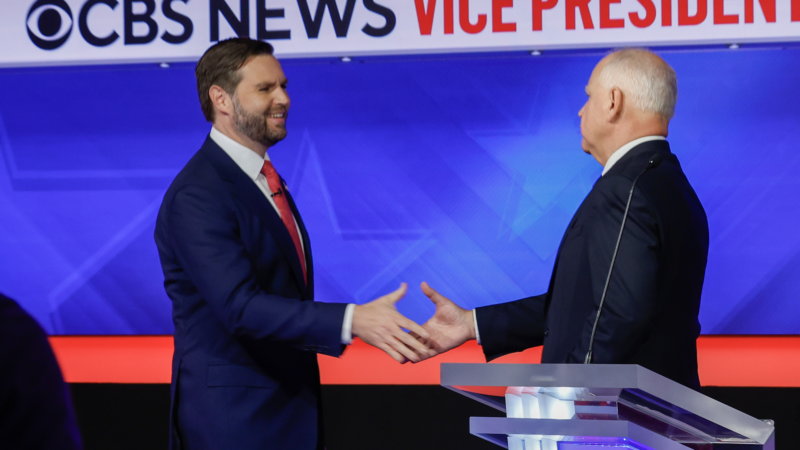‘A damning non answer’: Vance refuses to say whether Trump lost in 2020 at debate
This story first appeared in the NPR Network’s live blog of the 2024 vice presidential debate between JD Vance and Tim Walz. For the latest on the campaign, head to NPR’s Elections page.
In Tuesday’s vice presidential debate, Republican Sen. JD Vance refused to answer when asked directly if former President Donald Trump lost the 2020 election, and sidestepped other questions about election integrity.
Moderators asked Vance if he would, as vice president, “seek to challenge this year’s election results, even if every governor certifies the results.” They also asked about his past remarks on the 2020 election, particularly what he has said about asking states to “submit alternative electors” before certifying the election.
Vance dodged the questions, though, and said that he was “focused on the future” and that “censorship” was a bigger threat to democracy.
When Walz re-upped the matter, asking Vance, “Did Trump lose the 2020 election?” Vance replied that he was “focused on the future.”
Walz called the response “a damning non answer.”
As recently as this year, Vance told ABC News that he if he was vice president in 2020 he would not have certified the election like former Vice President Mike Pence did in 2021.
“If I had been vice president, I would have told the states, like Pennsylvania, Georgia and so many others, that we needed to have multiple slates of electors, and I think the U.S. Congress should have fought over it from there,” Vance said. “That is the legitimate way to deal with an election that a lot of folks, including me, think had a lot of problems in 2020. I think that’s what we should have done.”
The discussion over electors was a key controversy during the Trump campaign’s broader scheme to overturn the results of the 2020 election. That scheme resulted in several criminal investigations.
To be clear, there is nothing in the Constitution that empowers a vice president to force states to have multiple slates of electors. According to legal experts, it is up to states to decide that. And in the case of the 2020 election, there was no reason for states to consider multiple slates of electors.
And lastly, a vice president’s role during certification is largely ceremonial. According to the Brennen Center for Justice, federal law “clarifies what was already evident to most legal observers: the vice president’s role in the joint session is limited to ‘ministerial duties,’ and she or he does not have the authority to determine the validity of electoral votes or otherwise ‘adjudicate or resolve disputes.’”
NPR fact checked the Vance-Walz vice presidential debate. Here’s what we found
JD Vance and Tim Walz debated on Tuesday in the last scheduled debate of the election. The sparring was mostly collegial but a number of points on key issues require additional context or corrections.
Vance leaves the cat and dog claims behind as he battles Walz over immigration
JD Vance spoke of workers and the impact of immigration, while Tim Walz decried dehumanizing rhetoric.
On the VP debate stage, two visions for policing in America were laid out
The disparate philosophies between Tim Walz and JD Vance on law and order and ensuring public safety in the U.S. were on display in the presidential debate.
Despite the candidates’ differences, ‘agree’ was a buzzword on the VP debate stage
Tim Walz and JD Vance shook hands multiple times on the debate stage, and each spoke of several areas in which they agree with the other. Here are some examples.
